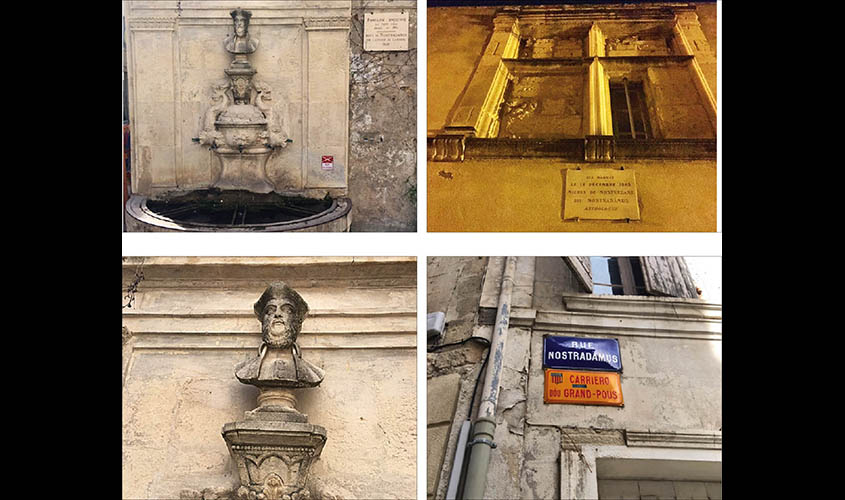Disembarking from the aircraft at the ancient port city of Marseilles the traveller’s olfactory senses are suffused with the delicious oily medicinal smell of cedar sap. Marseilles enjoys the dubious reputation of the most dangerous city in Europe but it is also the gateway to Provence and the Cote d’Azur, two of Europe’s favourite holiday destinations. The car rental office explained they only had Japanese hybrid cars as all the Volkswagens and BMW’s had their sat-nav consoles stolen; this reporter found it was no wonder that Japanese consoles remained unscathed because to a western mind they are quite illogical. Driving off towards the limestone mountain range of Les Apilles it is amazing to notice what a bounty for the rural economy the countryside provides. Les Baux area is the home of world class olive oil, the premium olive trees planted in neat pixelated rows are laden with their fruit waiting for an October early harvest. There are eating olives and juicier ones for pressing into oil, the grower is recompensed by quantity of oil produced not by the gross weight of the olive crop; the oil is used in all things gastronomic, in the soap traditional to Marseilles and in a cornucopia of natural cosmetics. The small hummocked rows of lavender remind that beauty preparations and niche comestibles are another of nature’s gifts to the region; artisanry is a science in the South of France thus the fruits, flowers, nuts and herbs are transformed into delicious lotions, potions, fragrances, jams, honeys, nougats and candles for French consumers and tourists. The French have always been a whizz at packaging and display, the shops bulging with customers bear testament to their appeal.
Family vineyards line the roadsides, Chateauneuf-du-Pape and Beaumes-de-Venise to name but two of hundreds; many of the wine producing families offer tours or tastings and have opened restaurants and retail outlets in their homes/ chateaux providing a fine day out for visitors. And then there are the antiques, with the medieval town of Isle-sur-Sorgue as the magnet for dealers and homemakers who come from far and wide to scour the superabundance of antique shops for oak, plane, sycamore and olive wood authentic Provençal furniture. Left over from the C19th Isle-sur-Sorgue has 14 tired old water-wheels that used to power the silk and wool mills for the textile industry of the area, now the only industry is antiques and eating.
The delightfully convivial town of St Remy is the birthplace of the C16th astrologer, seer, poet, physician and humanist Michel de Nostradamus, whose name literally means “we give what is ours” or “we pass on our knowledge”; his original house still stands and he is symbolically remembered by a fountain in Rue Nostradamus.
Security police are noticeable in the top tourist towns and the peppery heat that makes the coniferous forests a tinder box during the summer months requires the permanent presence of fire engines. This reporter had not visited Provence for 26 years and found the climate, vegetation and landscape as seductive as ever. Affluent Australian and Scandinavian settlers have contributed to the prosperity of some villages but parts of Provence are still suffering an economic drought, poor internet, dirty villages and smelly drains belie investment. Stopping to refill the fuel tank before returning our Toyota hybrid, after driving hundreds of kilometres we found that the tank was still full, we gave top marks to Japanese engineering.

